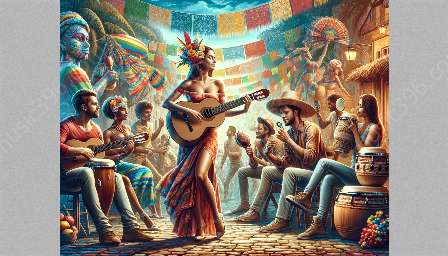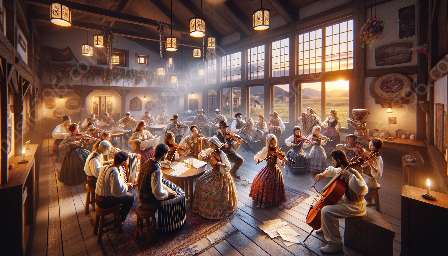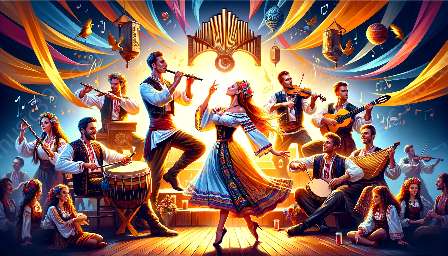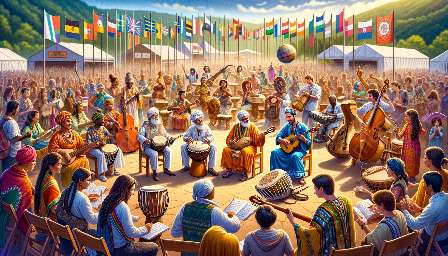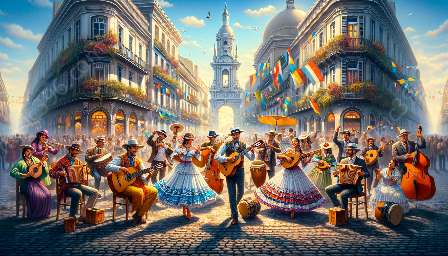The Origin and Evolution of Bossa Nova
Bossa Nova, a genre of Brazilian music, emerged in the late 1950s and quickly became an iconic and influential cultural phenomenon. It originated in the beachside neighborhoods of Rio de Janeiro, where it was shaped by a fusion of samba rhythms, jazz harmonies, and lyrical storytelling.
This unique blend of musical traditions gave rise to a new and distinctive sound that captured the imagination of audiences both in Brazil and around the world. Bossa Nova's melodic sophistication and rhythmic subtlety marked a departure from the more exuberant and percussive nature of traditional samba, earning it a special place in the hearts of music enthusiasts globally.
Bossa Nova's Influence on Brazilian Art and Society
Bossa Nova did not only impact the music scene but also permeated various aspects of Brazilian culture, leaving an indelible mark on art, literature, and society. Its smooth and seductive melodies echoed the social and cultural shifts occurring in Brazil at the time, providing a soundtrack for the country's emerging urban middle class and their experiences.
The rise of Bossa Nova coincided with a period of intense creativity and innovation in Brazilian art and literature, with artists and writers drawing inspiration from the genre's evocative themes and poetic sensibilities. This influence helped shape a new artistic and cultural identity for Brazil, one that resonated with audiences far beyond its borders.
Furthermore, Bossa Nova played a significant role in challenging and redefining traditional gender norms and racial dynamics in Brazilian society. Its emphasis on intimacy and emotional expression provided a platform for women and Afro-Brazilian musicians to make their mark in a predominantly male and white-dominated music industry.
The Global Reverberations of Bossa Nova
Bossa Nova's global impact cannot be overstated. From the smoky jazz clubs of New York City to the refined concert halls of Europe, the genre captivated audiences and musicians alike, leading to a widespread fascination with Brazilian culture and music. Its influence extended beyond the realm of music, permeating fashion, film, and popular culture.
Internationally acclaimed artists such as Antonio Carlos Jobim, João Gilberto, and Astrud Gilberto became ambassadors of Bossa Nova, introducing its enchanting melodies and rhythms to audiences worldwide. The genre's velvety guitar strums, gentle percussions, and poetic Portuguese lyrics found a receptive audience eager for something fresh, exotic, and emotionally resonant.
Bossa Nova's Enduring Legacy
Over six decades since its inception, Bossa Nova continues to exert a profound influence on world music, inspiring contemporary artists and shaping new iterations of Brazilian music. Its legacy can be heard in the works of musicians across genres, from jazz and pop to electronic and beyond, attesting to its enduring appeal and relevance.
Moreover, the cultural impact of Bossa Nova in Brazil remains palpable, as the genre remains a symbol of the country's artistic and musical heritage. Its melodies continue to evoke the nostalgic allure of Rio de Janeiro's beaches, the intimate whispers of its urban romance, and the vibrant pulse of a nation undergoing profound social change.
Conclusion
Bossa Nova's cultural impact in Brazil is a testament to the genre's ability to transcend musical boundaries and become a catalyst for social, artistic, and global change. Its captivating melodies and profound influence have established Bossa Nova as a cornerstone of world music, affirming its place in the annals of cultural history and collective imagination.

